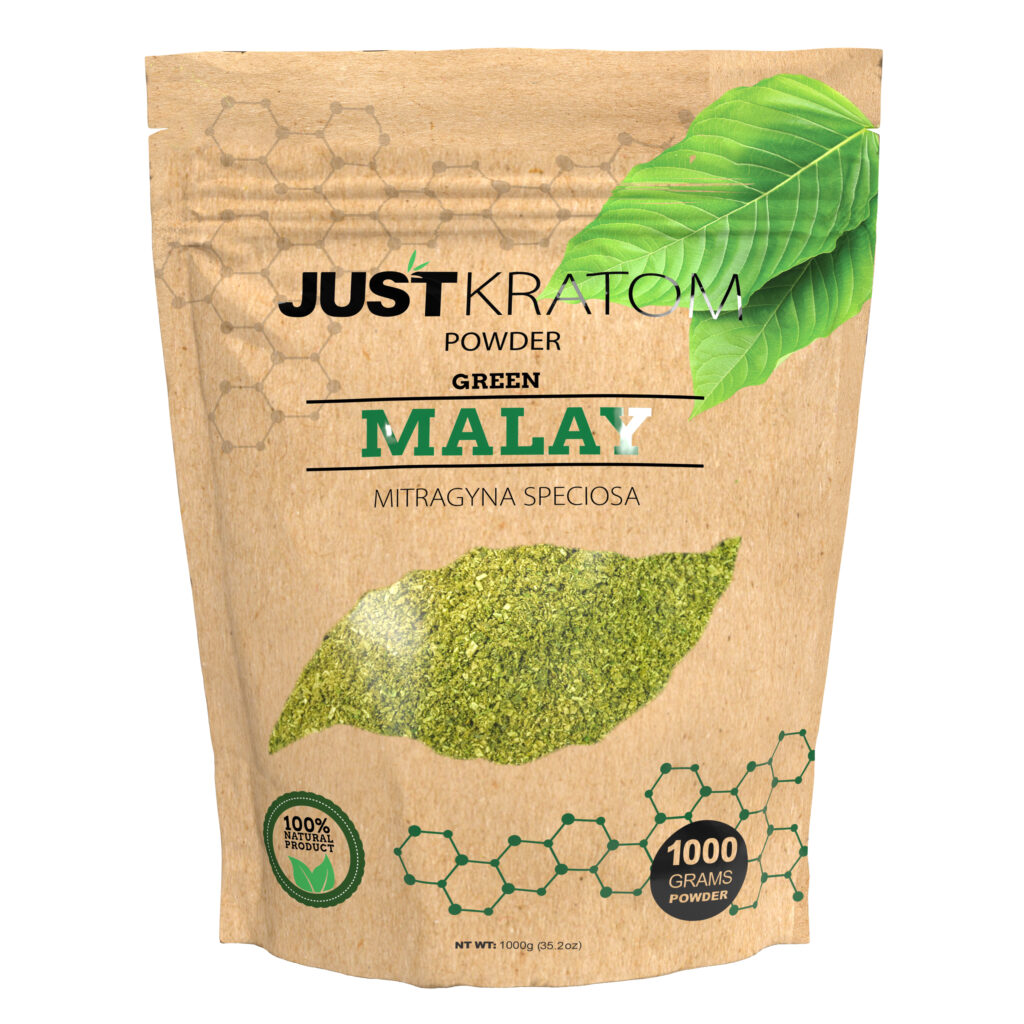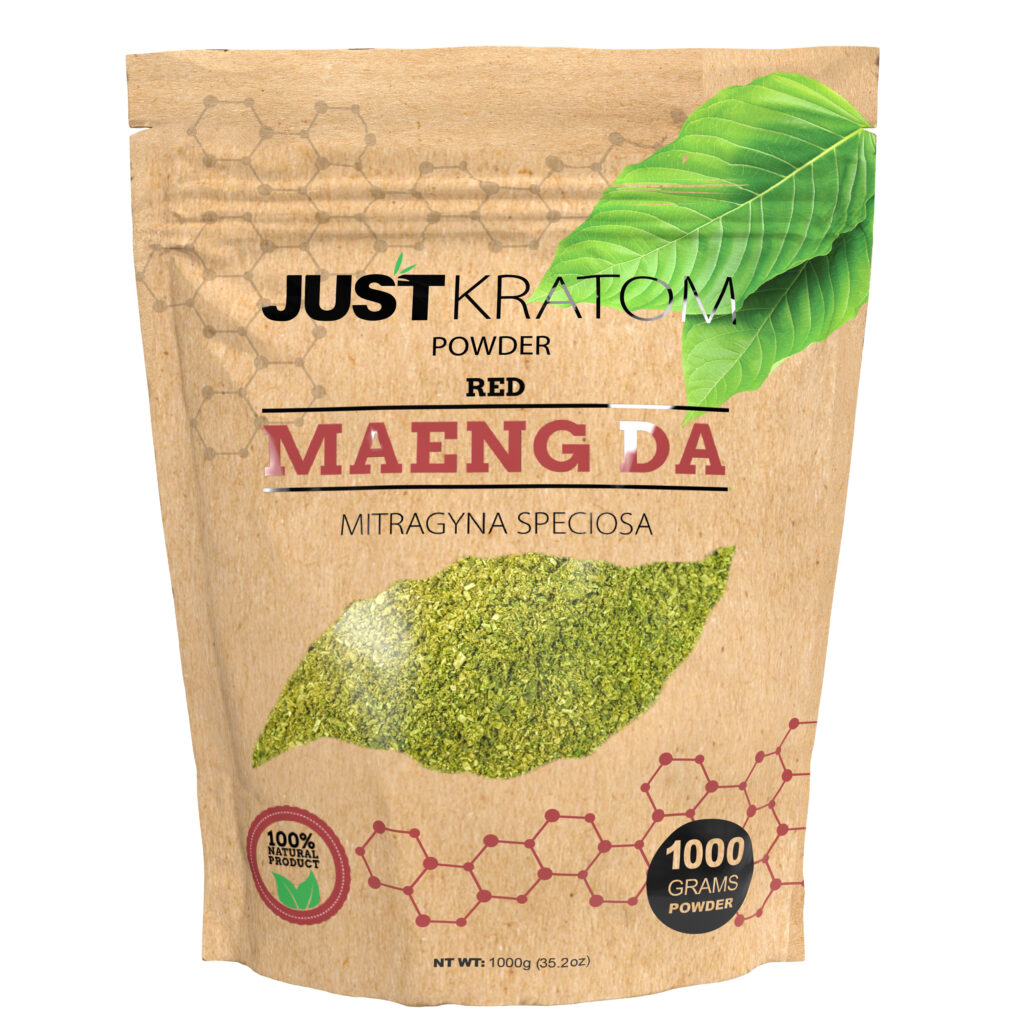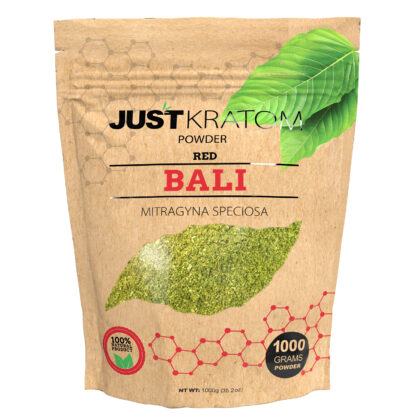Potential Benefits

Potential benefits have garnered increasing interest in relation to kratom powder, particularly its purported effects on mental health disorders.
Reduced Anxiety and Stress
One potential benefit associated with kratom powder is its possible role in reducing anxiety and stress. Some users report experiencing a calming effect after consuming kratom, which may be attributed to its interaction with opioid receptors in the brain. This modulation of neurotransmitters involved in mood regulation could potentially alleviate symptoms of anxiety and promote feelings of relaxation.
Mood Elevation
Kratom’s impact on mood elevation is another area of interest. Some users report experiencing a sense of euphoria or well-being after consuming kratom, possibly due to its stimulating effects on certain neurotransmitters. This potential for mood elevation may be beneficial for individuals struggling with depression or low mood.
Improved Sleep Quality
One area where kratom powder has shown promise is in improving sleep quality. Users have reported experiencing deeper and more restful sleep after consuming kratom. This effect may be related to its ability to reduce anxiety and stress, which can interfere with sleep patterns.
Additionally, kratom’s potential to act as a mild analgesic could contribute to better sleep by reducing pain that might disrupt sleep cycles.
Risks and Potential Negative Effects
Despite these potential benefits, it is crucial to acknowledge the risks and potential negative effects associated with kratom powder.
Addiction and Dependence
One significant risk is addiction and dependence. Kratom contains mitragynine and 7-hydroxymitragynine, alkaloids that interact with opioid receptors in the brain. These compounds can produce feelings of euphoria and pain relief, leading to potential for abuse and dependence.
Prolonged or excessive use of kratom can result in withdrawal symptoms such as anxiety, insomnia, nausea, muscle aches, and irritability when attempting to discontinue use.
Another concern is the potential for adverse effects on mental health. While some users report positive mood-altering effects, kratom can also exacerbate existing mental health conditions like anxiety and depression. It may also trigger psychosis in vulnerable individuals.
Additionally, kratom’s interaction with other medications can be unpredictable and potentially dangerous. It can interfere with the effectiveness of certain drugs, such as antidepressants, pain relievers, and blood thinners.
Due to these risks, it is essential for individuals considering using kratom to consult with a healthcare professional to assess potential benefits and risks in their specific circumstances.
Withdrawal Symptoms
Kratom powder carries significant risks and potential negative effects that should be carefully considered. One major concern is the risk of addiction and dependence. The alkaloids mitragynine and 7-hydroxymitragynine, found in kratom, interact with opioid receptors in the brain, leading to feelings of euphoria and pain relief that can drive abuse and dependence.
Prolonged or excessive use can lead to withdrawal symptoms such as anxiety, insomnia, nausea, muscle aches, and irritability when attempting to quit. Kratom’s impact on mental health is another area of concern. While some users may experience temporary mood elevation, kratom can worsen existing mental health conditions like anxiety and depression. It may also trigger psychosis in vulnerable individuals.
Furthermore, kratom’s interaction with other medications is unpredictable and potentially dangerous. It can interfere with the effectiveness of various drugs, including antidepressants, pain relievers, and blood thinners.
Cognitive Impairment
One significant risk associated with kratom powder is addiction and dependence. The alkaloids mitragynine and 7-hydroxymitragynine in kratom interact with opioid receptors in the brain, producing euphoria and pain relief. This can lead to abuse and dependence, potentially resulting in withdrawal symptoms like anxiety, insomnia, nausea, muscle aches, and irritability when trying to stop using it.
Kratom’s effects on mental health are also a concern. While some users report mood elevation, kratom can worsen existing mental health conditions such as anxiety and depression. It may even trigger psychosis in susceptible individuals.
Another risk is the unpredictable interaction kratom has with other medications. It can interfere with the effectiveness of antidepressants, pain relievers, and blood thinners, potentially leading to dangerous complications.
Interactions with Medications
Kratom powder poses several risks and potential negative effects that warrant serious consideration.
One major concern is addiction and dependence. Kratom contains alkaloids that interact with opioid receptors in the brain, producing feelings of euphoria and pain relief. This can lead to a cycle of abuse and dependence, making it difficult to stop using kratom.
Prolonged use can result in withdrawal symptoms such as anxiety, insomnia, nausea, muscle aches, and irritability when attempting to quit.
Furthermore, kratom’s interaction with other medications is unpredictable and potentially dangerous. It can interfere with the effectiveness of various drugs, including antidepressants, pain relievers, and blood thinners, leading to harmful consequences.

Current Research and Limitations
Despite growing interest in kratom powder for its potential therapeutic benefits, particularly concerning mental health disorders, current research is limited. While some studies suggest potential benefits for anxiety, depression, sleep quality, and pain management, these findings are often preliminary and require further investigation.
The lack of large-scale, rigorously controlled clinical trials makes it difficult to determine the true efficacy and safety of kratom for treating mental health conditions. Furthermore, individual responses to kratom can vary greatly, and factors such as dosage, frequency of use, and individual physiology can influence both the benefits and risks associated with its consumption.
Preclinical Studies
Current research on kratom powder’s impact on mental health disorders is limited. While some preclinical studies and anecdotal reports suggest potential benefits for conditions like anxiety, depression, and insomnia, these findings lack conclusive evidence from large-scale, controlled clinical trials.
The lack of robust scientific data makes it difficult to establish the true efficacy and safety of kratom for treating mental health issues. Individual responses to kratom can also vary significantly depending on factors such as dosage, frequency of use, and individual physiology.
Human Clinical Trials
Current research on kratom powder’s impact on mental health disorders is limited. While some preclinical studies and anecdotal reports suggest potential benefits for conditions like anxiety, depression, and insomnia, these findings lack conclusive evidence from large-scale, controlled clinical trials.
The lack of robust scientific data makes it difficult to establish the true efficacy and safety of kratom for treating mental health issues. Individual responses to kratom can also vary significantly depending on factors such as dosage, frequency of use, and individual physiology.
Further Research Needs
Current research on kratom powder’s impact on mental health disorders is limited. While some preclinical studies and anecdotal reports suggest potential benefits for conditions like anxiety, depression, and insomnia, these findings lack conclusive evidence from large-scale, controlled clinical trials. The lack of robust scientific data makes it difficult to establish the true efficacy and safety of kratom for treating mental health issues.
- Future research should focus on conducting large-scale, randomized controlled trials to evaluate the long-term effects and potential benefits of kratom for specific mental health disorders.
- Studies investigating the underlying mechanisms by which kratom may exert its effects on the brain and mood regulation are also crucial.
- Research should explore potential interactions between kratom and other medications, as well as individual factors that may influence response to kratom treatment.
Regulation and Legal Status
Regulation of kratom varies significantly across the globe. In some countries, it is legal and readily available, while in others, it is banned or heavily restricted. The United States has adopted a complex approach, with several states prohibiting kratom entirely and others regulating its sale and distribution.
This patchwork of regulations reflects the ongoing debate surrounding kratom’s potential benefits and risks.
Variability Across Jurisdictions
The regulatory status of kratom varies greatly depending on the jurisdiction. Some countries have completely banned it, while others permit its sale and use with varying restrictions. In the United States, for example, there is no federal ban on kratom, but individual states have enacted their own regulations, ranging from outright prohibition to legal sales with age restrictions and labeling requirements. This lack of uniformity in regulation makes it difficult to assess the overall risk and benefit profile of kratom.
Concerns Regarding Safety and Efficacy
Despite potential benefits, concerns regarding the safety and efficacy of kratom powder persist.
- One primary concern is addiction and dependence. Kratom contains mitragynine and 7-hydroxymitragynine, alkaloids that interact with opioid receptors in the brain, producing euphoria and pain relief. This can lead to abuse and dependence.
- Prolonged or excessive use can result in withdrawal symptoms such as anxiety, insomnia, nausea, muscle aches, and irritability when attempting to quit.
- Another concern is kratom’s potential adverse effects on mental health. While some users report mood elevation, it can worsen existing conditions like anxiety and depression, potentially triggering psychosis in vulnerable individuals.

Furthermore, kratom’s interaction with other medications is unpredictable and potentially dangerous. It can interfere with various drugs, including antidepressants, pain relievers, and blood thinners.
The lack of robust scientific data on kratom makes it difficult to determine its true efficacy and safety for treating mental health disorders.
Shop for Kratom Powder from Just Kratom
- Xela Rederm Skin Booster Treatments Near Morden, Surrey - January 5, 2026
- Xela Rederm Skin Booster Treatments Near Bourne, Surrey - January 3, 2026
- Why The Craftsman Series Vape Is A Must-Have For Flavor Chasers - December 31, 2025
